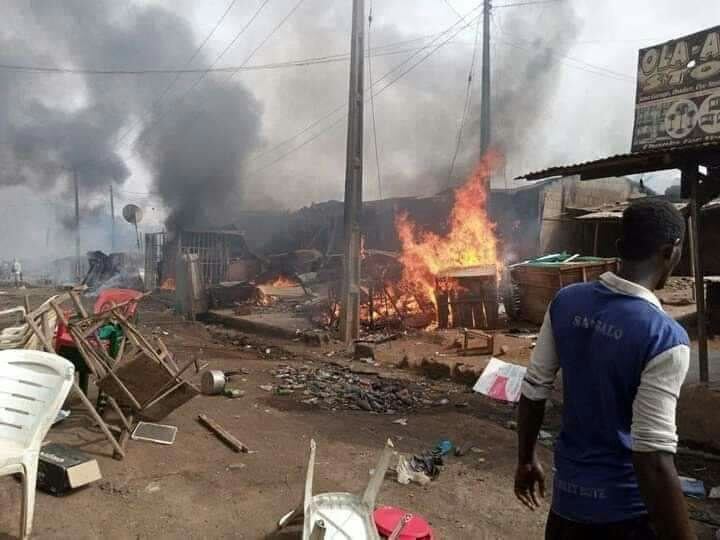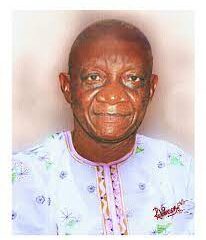Article of Faith
Religious Crisis In Nigeria; The Way Forward -By Adeparua Damilola
In conclusion, the people should bear in mind that God is not someone anybody can fight for or fight against and stop causing unrest under the pretext of defending God. There should be equal rights among the people to practice their religion without the fear of being killed or coerced into being converted from one religion to another in order to pave way for a peaceful co-existence of the two religions and the different tribes in Nigeria.

Nigeria as a country is a multi-ethnic and culturally diverse federation, which consists of 36 autonomous states and the Federal Capital Territory. Apart from this indispensable fact, it is also religiously diverse but the two most prominent religions practiced are the Islamic religion and the Christianity religion. As rightly said by Jonathan Swift,” We have just enough religion to make us hate, but not enough to make us love one another”, such exactly is the case in Nigeria. Religion that is supposed to keep people together in love has turned to the cord of enmity leading to an irresolvable difference between the already disjointed tribal groups’ problems.
Survey shows that according to 2018 estimate in The World Fact book by the Central Intelligence Agency( CIA), the religion population is estimated to be 53.5% Muslim, 45.9% Christian (10.6% Roman Catholic and 35.3% other Christian), and 0.6% as other.
As recorded by Wikipedia, Nigeria was amalgamated in 1914, only about a decade after the defeat of the Sokoto Caliphate and other Islamic states by the British, which were to constitute much of Northern Nigeria. The aftermath of the First World War saw Germany lose its colonies, one of which was Cameroon, to French, Belgian and British mandates. Cameroon was divided into French and British parts, the latter of which was further subdivided into southern and northern parts. Following a plebiscite in 1961, the Southern Cameroons elected to rejoin French Cameroon, while the Northern Cameroons opted to join Nigeria, a move that added to Nigeria’s already large Northern Muslim population. The territory comprised much of what is now Northeastern Nigeria, and a large part of the areas affected by the present and past insurgencies.
Going further, in Nigeria, violent religious crises, more especially between the Christians and Muslims have claimed thousands of lives and properties worth hundreds of millions have been destroyed. For example, between 1980 -1992, 26 religious riots were recorded and the death toll put at 6,775, official figures.
In 1993 the Human Rights Committee, an independent body of 18 experts selected through a UN process, described religion or belief as “theistic, non-theistic and atheistic beliefs, as well as the right not to profess any religion or belief.”
In addition, Article 18 of the Universal Declaration of Human Rights states that everyone has the right to freedom of thought, conscience and religion; this right includes freedom to change his religion or belief, and freedom, either alone or in community with others and in public or private, to manifest his religion or belief in teaching, practice, worship and observance.
Unfortunately, the reverse is the case in Nigeria as the two most prominent religions in the country are at loggerheads over which religion is supreme and which religion should dominate. This in effect has turned what should be the basis of peace to war, and this makes one wonder what generated the enmity.
Research shows that The 1980s saw an upsurge in violence due to the death of Mohammed Marwa (“Maitatsine”). In the same decade, the military ruler of Nigeria, General Ibrahim Babangida, enrolled Nigeria in the Organization of the Islamic Conference. This was a move, which aggravated religious tensions in the country, particularly among the Christian community. In response, some in the Muslim community pointed out that certain other African member states have smaller proportions of Muslims, as well as Nigeria’s diplomatic relations with the Holy See.
The fear of domination is a major problem fuelling the religious crisis in Nigeria. Despite that, the country is battling with the fear of domination of a particular tribe over the others, the two most eminent religions are also engaging in a battle for supremacy. As rightly reasoned out by Voltaire” If you have two religions in your land, the two will cut each other’s throats; but if you have thirty religions, they dwell in peace”, these two religions are in disagreement owing to the higher percentage they each share in the population of the country compared to the percentage shared by the other religions. The rule of law has been displaced and there is no respect for human right of freedom to practice their chosen religions and human lives are wasted on daily basis under the aegis of religion.
As mentioned by this same writer in a piece titled “Factors stimulating poverty in Nigeria” that poor access to Education is a major problem aiding poverty in Nigeria, poverty ensues from lack of Education and Education brings about enlightenment. Statistics show that beyond national average, the division by geopolitical zones puts the South East ahead of the rest with 95.4% literacy rate and the Northwest with the lowest at 38%. Following the Southeast are the South-South at 94.8%, the South West at 92.6%, the North Central at 62% and the North East at 41.9% in 2018. Consequential to the rate of illiteracy, the people are poor and easily brainwashed into killing their fellow citizens under the umbrella of religion.
Government’s involvement in Religious matters is another cause of religious turbulence. Whoever will rule the multi ethnic and religiously diversified Nigeria must not be a religious extremist or ethnic supremacist as such will bring nothing other than disunity among the people. It is quite unfortunate that the government gets involved in issues related to tribal differences and the fight for religious supremacy. C.S Lewis says, “Of all bad men, religious bad men are the worst.
As posited by Chaucer in his ‘Tale of Melibee’, “idle hands are devil’s tool”. High rate of unemployment contributes to the religious crisis in Nigeria. When people are gainfully employed, they will have little or no time for crisis but presently in Nigeria, as posited by a source, Nigeria’s unemployment rate has risen to 33%, second highest on global List. Unemployed people can be easily bribed with money to cause havoc in the society.
As asserted by a source, Crises in Nigeria particularly, religious crisis has affected the growth and development of communities and people in particular and economy in general. Many lives have been cut short, properties worth millions of naira destroyed; innocent Nigerians displaced and turned to refugees in their father’s land.
In curbing religious violence, the government should make education accessible to all in an affordable way and effort should be made in getting more people employed. In addition, the government should desist from getting involved in religious matters, as this can bring about discord, unrest and disunity in the society. Furthermore, there should be respect for human right and tolerance for an individual’s religion. In conclusion, the people should bear in mind that God is not someone anybody can fight for or fight against and stop causing unrest under the pretext of defending God. There should be equal rights among the people to practice their religion without the fear of being killed or coerced into being converted from one religion to another in order to pave way for a peaceful co-existence of the two religions and the different tribes in Nigeria.
Adeparua Damilola
Can be reached via; adeparuaadot55@yahoo.com/08144461750















